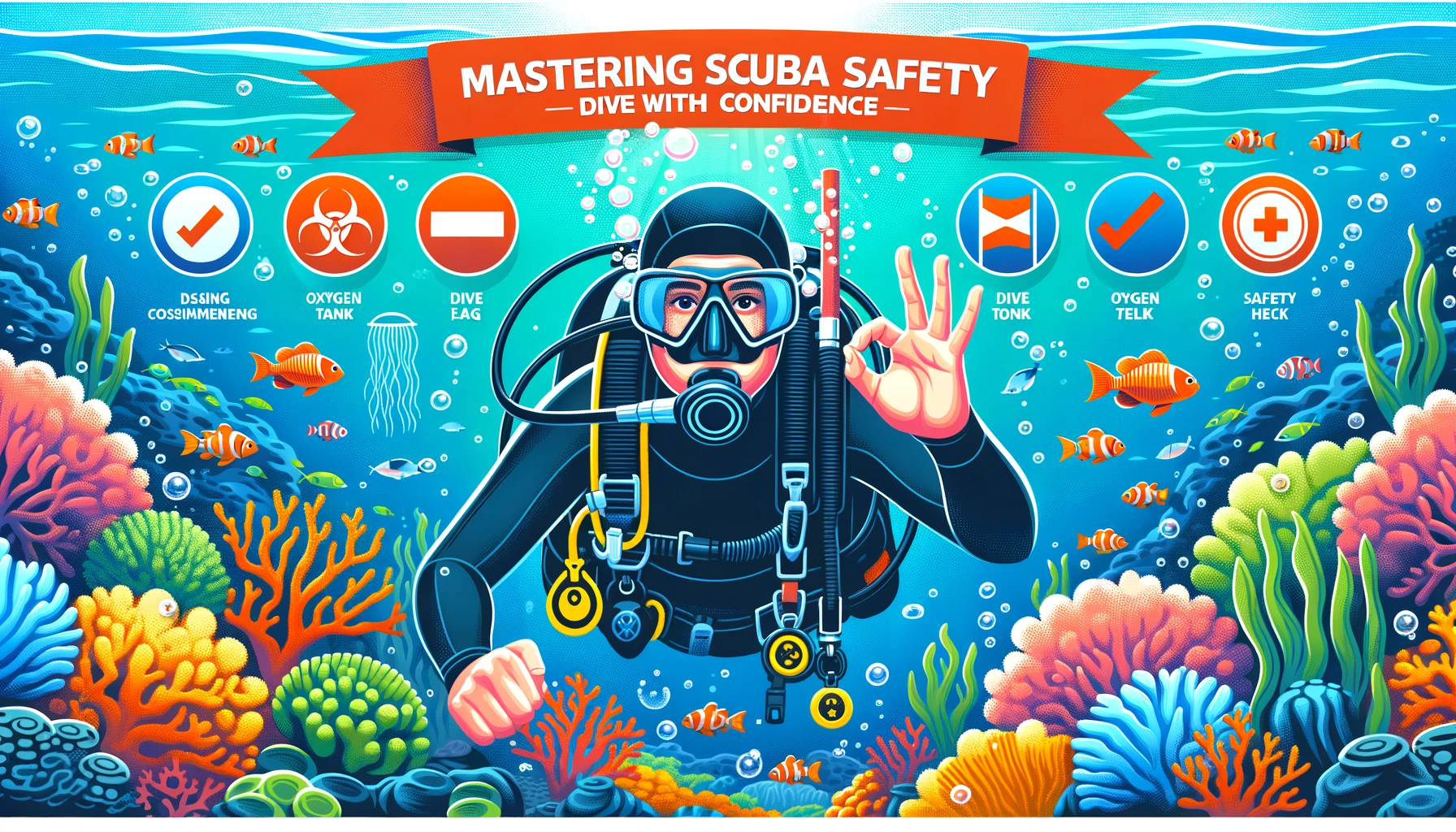Mastering Scuba Safety: What Every Diver Should Know
Are you fascinated by the underwater world? Do you want to explore the ocean’s depths and discover its hidden treasures? Scuba diving is a thrilling activity that allows you to experience a whole new world beneath the surface. However, with this excitement comes certain risks that every diver should know.
The Importance of Safety in Scuba Diving
Scuba diving requires proper training, equipment, and knowledge to ensure a safe and enjoyable experience. As divers venture into deeper waters, they are exposed to potential hazards such as strong currents, marine life encounters, and equipment malfunctions. Therefore, divers must prioritize safety above all else.
Understanding the Basic Safety Rules
The basic safety rules of scuba diving are essential for ensuring your well-being underwater. First, always dive with a buddy. A dive partner can help you in case of equipment failure or other emergencies. Second, never hold your breath. Continuous breathing is crucial as it prevents lung over-expansion. Third, control your ascent and descent rates. Rapid changes in depth can lead to decompression sickness or other potentially serious health issues.
Checking the Gear and Equipment
Ensuring that your diving gear and equipment are in good condition before each dive is crucial. Regular maintenance of your scuba equipment, including your air compressor, can prevent unexpected malfunctions while underwater.
If you are renting equipment, make sure that it is from a reputable dive shop and thoroughly inspect it before use. Additionally, always check your gear for any signs of wear and tear before each dive.
Understanding Your Limits
Knowing your limits as a diver is essential for safety. This includes being aware of your physical abilities, skill level, and personal comfort zones. Never push yourself beyond these limits, especially when diving into unfamiliar or challenging environments.
Furthermore, properly planning your dives according to the depth and length of time spent underwater can prevent fatigue and other health issues. Always communicate with your dive instructor or guide if you have any concerns about the planned dive.
The Value of Certification and Continuing Education
Becoming a certified scuba diver requires completing a training program that covers safety protocols and techniques. These courses not only teach you how to dive safely but also equip you with the necessary skills and knowledge to handle potential emergencies.
Continuing education is also crucial for divers, as it allows them to refresh their skills and learn new ones. It is recommended to take refresher courses if you have not been diving for an extended period or are planning to explore more challenging dive sites.
Risks and Dangers in Scuba Diving
While scuba diving can be an incredible experience, it is not without its risks. Understanding and preparing for these potential dangers is crucial for staying safe underwater.
Decompression Sickness
Decompression sickness (DCS), also known as “the bends,” occurs when nitrogen bubbles form in the body due to rapid changes in pressure during ascent. DCS can range from mild symptoms, such as joint pain or skin rashes, to more severe ones like paralysis or even death.
To prevent DCS, divers must follow proper ascent rates and plan their dives accordingly. Additionally, using a dive computer to track depth and time spent underwater can help prevent this condition.
Barotrauma Injuries
Barotrauma injuries occur when air spaces within the body, such as the sinuses or lungs, cannot equalize pressure during ascent or descent. These injuries can range from mild discomfort to severe conditions like pneumothorax (collapsed lung).
To prevent barotrauma injuries, divers must equalize their ears and sinus cavities frequently during descent and ascent. Additionally, proper breathing techniques and avoiding diving while congested can also help prevent these injuries.
Marine Life Encounters
While marine life encounters can be a highlight of scuba diving, they can also pose risks to divers. Some marine animals may perceive divers as a threat or prey and may act defensively.
To avoid potentially dangerous situations with marine life, always stay at a safe distance and never touch or disturb any animals underwater. Proper training and knowledge of marine life in the area can also help divers stay safe.
Health and Fitness for Scuba Diving
To ensure a safe and enjoyable dive, it is essential to be in good physical and mental health. Certain medical conditions, such as heart disease or respiratory problems, can pose risks while diving.
Before starting any scuba certification course, divers must complete a medical questionnaire and may need to obtain clearance from a doctor. Additionally, staying physically fit and maintaining proper nutrition can help prevent fatigue and other health issues while diving.
Conclusion
Scuba diving offers endless opportunities for exploration and adventure, but with that comes certain dangers. By understanding the importance of safety protocols, being aware of potential risks, and maintaining good physical and mental health, divers can safely enjoy the wonders of the underwater world. Remember to always prioritize safety above all else and never hesitate to seek guidance or assistance when needed. Happy diving!







